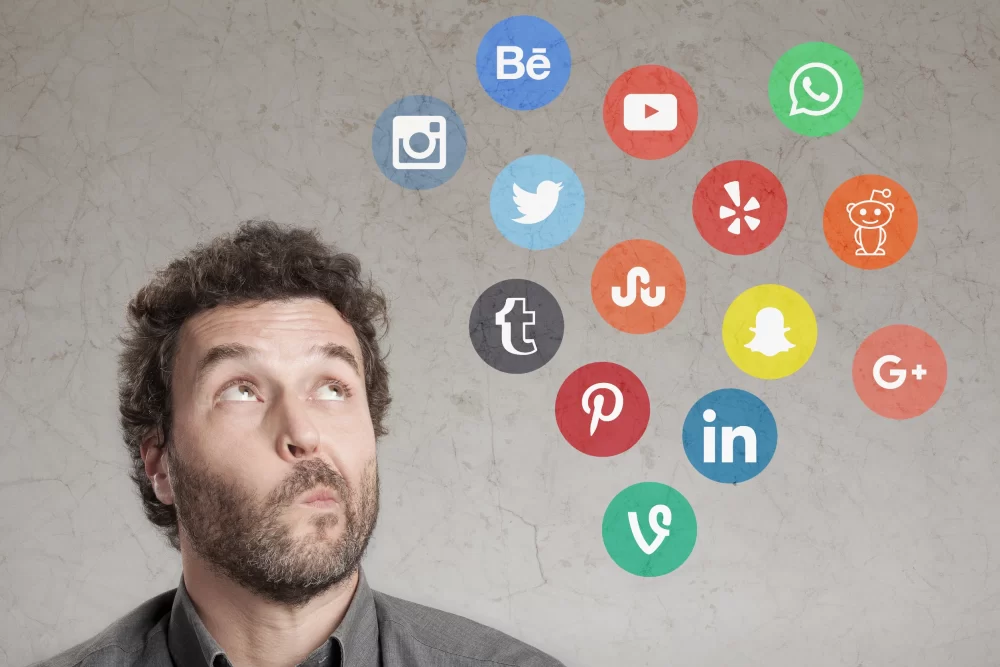In today’s fast-paced world, it’s easy to overlook the wisdom of Baby Boomers. However, many of their criticisms of modern trends are spot on. From the overuse of social media to the decline of handwritten communication, Boomers offer valuable insights that can improve our daily lives. Here are 15 things that Boomers think suck and why they’re absolutely right.
1. Social Media Overload

Baby Boomers often criticize the constant barrage of social media updates, and they have a point. The endless scrolling through posts, tweets, and stories can be overwhelming and mentally exhausting. Studies have shown that excessive social media use can lead to anxiety, depression, and a decreased sense of well-being.
Moreover, social media has become a breeding ground for misinformation and cyberbullying. The pressure to maintain a perfect online persona can also contribute to stress and burnout. Boomers who grew up without these platforms understand the value of genuine, face-to-face interactions and the importance of disconnecting from the digital world.
2. Automated Customer Service

Boomers often express frustration with automated customer service systems, and it’s easy to see why. Navigating through endless phone menus and dealing with unhelpful chatbots can be incredibly frustrating. Many people prefer speaking to a real person who can understand and address their concerns promptly.
Furthermore, automated systems can lack the empathy and flexibility needed to handle complex issues. Human customer service representatives are better equipped to provide personalized solutions and build rapport with customers. Boomers value the human touch and appreciate businesses that prioritize excellent customer service.
3. Decline of Handwritten Communication

The art of handwritten communication is something Boomers cherish, and its decline is lamentable. In an era dominated by emails and text messages, the personal touch of a handwritten letter or note is often lost. Handwritten communication conveys a sense of effort, care, and thoughtfulness that digital messages can’t match.
Research shows that writing by hand can also improve memory and cognitive skills. For Boomers, who grew up exchanging letters and handwritten cards, the shift to impersonal digital communication feels like a loss of a meaningful tradition. They believe that bringing back handwritten notes can foster deeper connections.
4. Fast Fashion

Boomers often criticize the fast fashion industry, and they’re justified in their concerns. Fast fashion promotes a culture of disposable clothing, leading to excessive waste and environmental damage. The production processes used by many fast fashion brands often involve exploitative labor practices and poor working conditions.
The focus on cheap, trendy clothing can lead to a decline in quality and durability. Boomers value timeless, well-made garments that can last for years, and they advocate for sustainable fashion choices. Emphasizing quality over quantity can help reduce environmental impact and promote ethical consumerism.
5. Overpriced Coffee

Boomers frequently bemoan the exorbitant prices of specialty coffee drinks, and they have a point. Spending $5 or more on a single coffee can quickly add up, straining budgets and promoting unnecessary spending. Many Boomers grew up enjoying simple, affordable coffee at home or local diners.
Additionally, the coffee shop culture can sometimes prioritize style over substance, with elaborate drinks that mask the true flavor of the coffee. Boomers appreciate the simplicity and authenticity of a good, straightforward cup of coffee. They encourage younger generations to reconsider their spending habits and embrace more budget-friendly options.
6. Invasive Advertising

Invasive advertising, particularly online, is a common grievance among Boomers. Pop-up ads, auto-playing videos, and targeted ads based on personal data can be incredibly intrusive and annoying. These aggressive marketing tactics can disrupt the online experience and make it difficult to enjoy content.
Concerns about privacy and data security are valid. Boomers, who remember a time before digital advertising, advocate for more respectful and less invasive marketing strategies. They believe that advertising should be informative and engaging without compromising user experience or privacy.
7. Decline of Physical Books

The decline of physical books in favor of e-books and audiobooks is something Boomers often lament. There’s a tactile pleasure in holding a physical book, turning its pages, and even smelling the paper. For many Boomers, reading a physical book is a comforting and immersive experience that digital formats can’t replicate.
Physical books also have a sense of permanence and collectibility. They can be displayed on shelves, shared with friends, and passed down through generations. Boomers encourage people to embrace physical books and support local bookstores, preserving this cherished tradition.
8. Overreliance on GPS

Boomers often criticize the overreliance on GPS navigation, and they have a valid point. While GPS technology is incredibly convenient, it can lead to a decline in basic navigation skills and spatial awareness. Boomers, who grew up using maps and learning to navigate on their own, understand the importance of these skills.
Relying too heavily on GPS can also lead to dangerous situations if the technology fails or provides incorrect directions. Boomers advocate for balancing the use of GPS with traditional navigation methods, promoting self-reliance and a better understanding of one’s surroundings.
9. Decline of Home Cooking

The decline of home-cooked meals in favor of fast food and takeout is a concern for many Boomers. Home cooking allows for healthier, more nutritious meals and fosters family bonding. Boomers, who often grew up with regular family dinners, value the tradition of cooking and eating together.
Cooking at home can be more cost-effective and environmentally friendly. Boomers encourage younger generations to rediscover the joy of home cooking, experimenting with recipes, and sharing meals with loved ones.
10. Excessive Screen Time

Boomers frequently point out the negative effects of excessive screen time, and they’re right. Spending too much time on smartphones, tablets, and computers can lead to eye strain, poor posture, and disrupted sleep patterns. Boomers, who spent more time outdoors and engaging in physical activities, understand the importance of a balanced lifestyle.
Excessive screen time can also reduce face-to-face interactions and hinder social skills development. Boomers advocate for setting limits on screen time and prioritizing real-world experiences and relationships.
11. Decline of Manners

Boomers often lament the decline of manners and etiquette in modern society. Simple courtesies like saying “please” and “thank you,” holding doors open, and respecting personal space can go a long way in fostering a respectful and considerate community. Boomers, who were raised with a strong emphasis on manners, see these as fundamental to civilized society.
The fast-paced, digital age can sometimes lead to impersonal and rude behavior. Boomers believe that reviving traditional manners and etiquette can improve social interactions and create a more polite and harmonious environment.
12. Disposable Culture

The rise of disposable culture, where products are used once and then discarded, is a significant concern for Boomers. This culture promotes wastefulness and environmental degradation. Boomers, who grew up in a time when reusing and repairing items was common, advocate for a more sustainable and mindful approach to consumption.
Boomers encourage reducing, reusing, and recycling to minimize waste and environmental impact. They believe that adopting sustainable practices can lead to a healthier planet for future generations.
13. Music Streaming

While music streaming services offer convenience and access to a vast library of songs, Boomers often miss the experience of listening to vinyl records or CDs. The tactile nature of physical media and the ritual of playing a record can enhance the listening experience. Boomers, who grew up with these formats, appreciate the sound quality and nostalgia they provide.
Owning physical music collections creates a deeper connection with the music and the artists. Boomers encourage younger generations to explore vinyl records and CDs, discovering a new appreciation for music.
14. Overpriced Housing

Boomers frequently express concern about the skyrocketing prices of housing, and they’re right to do so. The cost of buying or renting a home has become increasingly unaffordable for many people. Boomers, who bought homes at more reasonable prices, understand the importance of affordable housing for financial stability and quality of life.
High housing costs can lead to financial strain and limit opportunities for homeownership. Boomers advocate for policies and initiatives that promote affordable housing and make homeownership more accessible for everyone.
15. Decline of Personal Privacy

The decline of personal privacy in the digital age is a significant concern for Boomers. With the rise of social media, data collection, and surveillance, maintaining privacy has become increasingly challenging. Boomers, who grew up in a time with greater privacy, value the ability to keep personal information secure and private.
Boomers encourage people to be mindful of their digital footprint and take steps to protect their privacy. They advocate for stronger privacy regulations and greater transparency from companies regarding data collection practices.
The Wisdom of Boomers

Listening to Boomers’ concerns can provide valuable insights and help us make more informed decisions. Whether it’s reducing screen time, prioritizing handwritten communication, or advocating for affordable housing, their perspectives offer practical solutions for a better quality of life.
Share this article with others to spread awareness and spark meaningful conversations.
Read the full article here
















